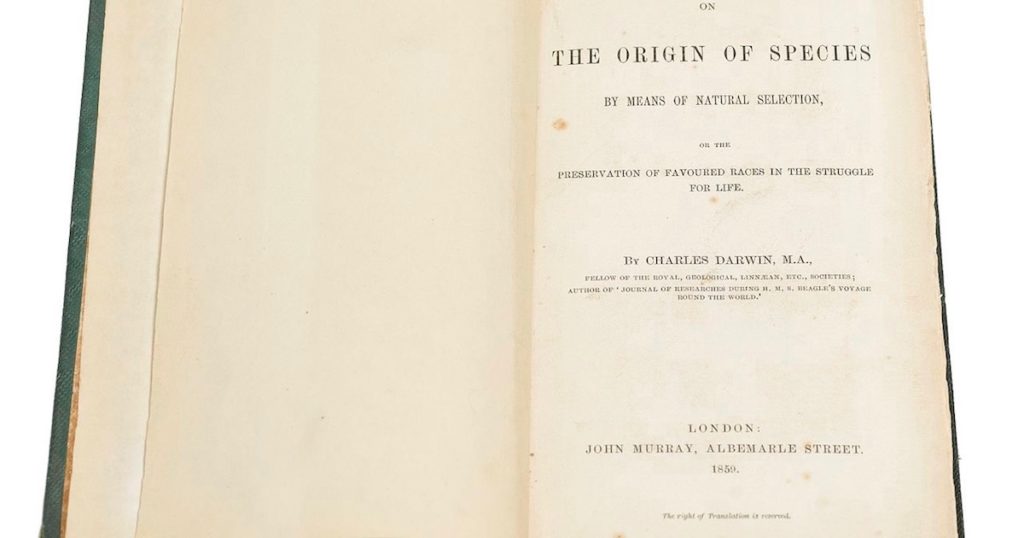 Evolution
Evolution
 Intelligent Design
Intelligent Design
Origin of Species: From Discussion Document to Nihilist Dogma

Editor’s note: We are delighted to present a new series by Neil Thomas, Reader Emeritus at the University of Durham, “Origin of Species: From Discussion Document to Nihilist Dogma.” This is the first article in the series. Professor Thomas’s recent book is Taking Leave of Darwin: A Longtime Agnostic Discovers the Case for Design (Discovery Institute Press).
One particularly intriguing, not to say perplexing aspect of the ongoing reception of Darwin’s Origin of Species is the way in which a work almost universally vilified by accredited scientific reviewers in the 1860s should over the next century and a half have become promoted to the status of biological gospel. What could possibly account for such a discrepancy in perception on the part of cohorts of persons separated chronologically yet otherwise sharing a remarkably similar intellectual profile in terms of scientific and scholarly distinction? The following observations, in a series at Evolution News, will seek pointers towards an understanding of what on the face of it seems to be an unaccountable disparity.
Reality Checks from History
An erstwhile academic colleague recently remarked to me (in an uncharacteristically unscholarly disclosure) that he could not share my interest in “all this old 19th-century stuff,” explaining that he preferred to derive his knowledge of Darwinism from more up-to-date, 21st-century sources. Common experience on the other hand indicates that the trouble with this kind of Henry Ford (“history is bunk”) argument is that, whilst we may often want to be through with history, history is typically not through with us and that those who choose to ignore the lessons of history may sometimes be condemned to repeat its errors. In the case of Darwin, the most serious error one could commit is to ignore 19th-century caveats against acceptance of Darwinism in favor of less critical, recent expositions of his work. For most standard accounts nowadays paper over the many sources of opposition to which the Origin of Species gave rise in the minds of its earlier readers.
Not Supported by the Evidence
Hence it appears to me that nobody who has not carefully considered the multiple interpretations and glosses which the Origin spawned over time can claim to have a properly contextualized understanding of the work’s import and contested intellectual status. In most modern accounts of Darwin’s ideas, for instance, the impression is given that in “natural selection” he had made a Great Discovery whose self-evident brilliance was such that all immediately assented to it. This is simply not supported by the evidence, and it would be anachronistic to suppose that Darwin’s Origin of Species suddenly achieved that status of latter-day Nicene Creed wished upon it by some über-Darwinians of our own day. Neither the first academic reviewers of the Origin1 nor even Darwin’s inner circle of friends and colleagues (including Thomas Huxley) were convinced by all its arguments and, most surprising of all, even Darwin himself demurred over critical aspects of his own work, occasionally in veritable agonies of indecision and self-doubt.
In all, one gains the impression from Darwin’s dedication of his Chapter 6 to what he termed “Difficulties on the Theory” that he was in some sense “flying a kite” to solicit the reactions of others rather than claiming to hand down the tablets of biological commandment for all future time.
Next, “Where Is the Evidence for Darwinism?”
Notes
- For details, see my Taking Leave of Darwin (Seattle: Discovery, 2021), pp. 61-67.
